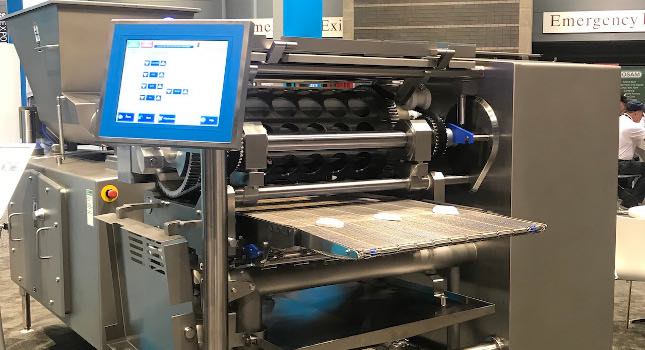Three bearing challenges in food production
The food and beverage production sector is facing bearing challenges with safety, sustainability and cost control. Potential solutions are highlighted for each.
In the food and drink sector, bearings are subjected to some of the most demanding environments to be found in the process sector. The top three challenges are:
1. Food safety. Contamination prevention is a top priority. There are three important aspects to focus on when it comes to contamination prevention in bearings.
The first thing is to opt for a bearing unit that has been designed with hygiene in mind to help reduce potential contamination traps. If the back seal seals statically against the housing and dynamically against the shaft, and the end cover fully seals against the housing on the front side, it will prevent process material from entering the bearing.
The second consideration relates to the materials used within the bearings. Seals need to be manufactured from food safe materials and colored blue for optical detectability to ensure they comply with FDA and EC recommendations.
The third consideration relates to the lubrication strategy. Use food safe lubricants that are NSF, Halal, Kosher and CFIA approved. Greases that are free from allergens as listed by the EC are also important. Where there is potential for incidental food contact, NSF category H1 lubricant is essential. Applying the correct amount of lubrication, at the right time, is also key so consider replacing manual lubrication with automatic lubrication systems or opt for relubrication free bearings.
2. Cost control. When it comes to understanding the cost of bearings, the total cost of ownership (TCO) needs to be taken into consideration, including the unit purchase price, but also other factors.
While energy usage per bearing is very small, the large numbers of bearings in use mean that even small reductions have the potential to make a positive cost impact. The key to reducing energy consumption in the bearing is through reducing friction, so look for bearing units that focus on this. You also need to take into account the energy expended in cleaning bearings. Consider swapping from open bearing units to re-lubrication free sealed units to reduce this cost.
Relubrication requirements impact on TCO, not only in terms of the cost of the lubricant but also machinery downtime to relubricate bearings. Swapping to relubrication-free bearings can help to avoid this.
Planned downtime for relubrication will, of course, have a cost implication, but the costs associated with unplanned downtime would be far higher. Unplanned downtime attributable to bearings is mostly down to early bearing failure, with 50% in the food and drink sector resulting from a lubrication issue. Using automated lubrication systems or swapping to lubrication free bearings can help overcome this challenge.
Washdown can also reduce the lifetime of a bearing unit. Use sealed rather than open bearing units to reduce the damage water and detergent can do to a bearing.
3. Sustainability. It is possible to reduce water and detergent usage in washdown, plus bearing grease contaminated wastewater, by using sealed, re-lubrication free bearings.
When it comes to bearings and greenhouse gas emissions, CO2 is the main issue. CO2 is generated in the manufacture of the bearing, in its energy consumption when operational and in its disposal. By investing in good quality bearings that are specifically made for use in the food and drink sector, greater longevity can be expected from the product. Also check to see if your bearing can be recycled at the end of its life
This originally appeared on Control Engineering Europe’s website. Edited by Chris Vavra, web content manager, Control Engineering, CFE Media and Technology, cvavra@cfemedia.com.
Original content can be found at Control Engineering.
Do you have experience and expertise with the topics mentioned in this content? You should consider contributing to our CFE Media editorial team and getting the recognition you and your company deserve. Click here to start this process.


